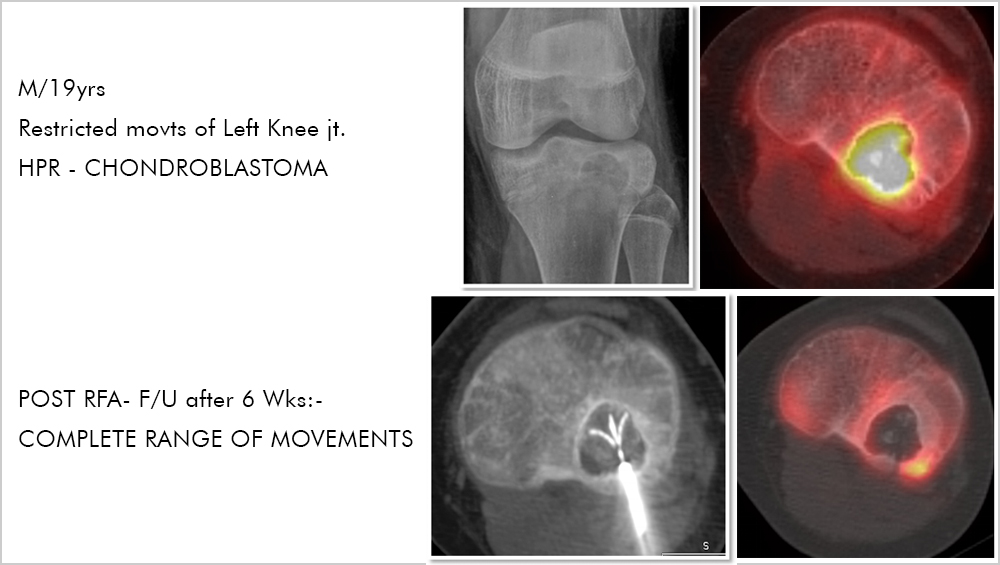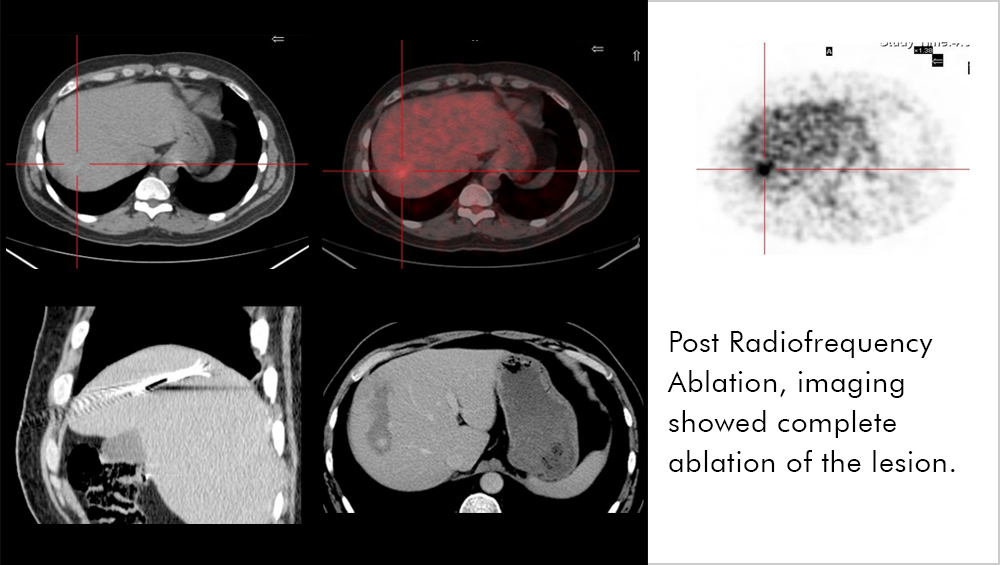Percutaneous Radio-frequency Ablation (RFA) of Tumours
- Home
- Percutaneous Radio-frequency Ablation (RFA) of Tumours
Interventional oncology is a subspecialty field of Vascular interventional radiology that deals with the diagnosis and treatment of cancer and cancer-related problems using targeted minimally invasive procedures performed under image guidance. Interventional oncology has developed to a separate pillar of modern oncology and it employs X-ray, ultrasound, computed tomography (CT) or magnetic resonance imaging (MRI) to help guide miniaturized instruments (e.g. biopsy needles, ablation electrodes, intravascular catheters) to allow targeted and precise treatment of solid tumours located in various organs of the human body.
While the surgical resection of tumours is generally accepted to offer the best long-term solution, it is often not possible due the size, number or location of the tumour. Vascular Interventional Radiology therapies may be applied to shrink the tumour, making a surgical or interventional treatment possible.

Patients can greatly benefit from Interventional Oncology treatments. The minimally invasive nature of the treatments means they cause less pain, fewer side effects and shorter recovery times. Many of these procedures can be performed on an outpatient basis, thereby reducing costs.
A. Percutaneous Radio-frequency Ablation (RFA) of Tumours:
Percutaneous means through the skin. Radiofrequency refers to the radio waves used in this treatment. Ablation means tissue destruction. Radio waves create heat to destroy the tumour.
Percutaneous Radio-frequency Ablation is a minimally invasive, repeatable procedure with few complications. This treatment can be performed for some liver tumours; cancers that have spread to the bones causing bone pain; as well as some lung and kidney tumours.
Using ultrasound or CAT scan guidance, the radiologist puts a probe through the skin and directly into the tumour. The radio waves create heat in the tissue and the heat kills the cells in a small area around the probe.
Case - 1 :
RADIOFREQUENCY ABLATION
60yr female patient, known case of operated CA Colon with a solitary Liver metastasis.
Patient was referred for Percutaneous Radiofrequency Ablation.

Case - 2 :
RADIOFREQUENCY ABLATION
19yr old male patient with complains of severe leg pain with restricted movements. On Xray Knee joint, there was a lytic lesion which was confirmed on MRI. On CT Guided Biopsy, Histopathology showed it was a Chrondroblastoma.

